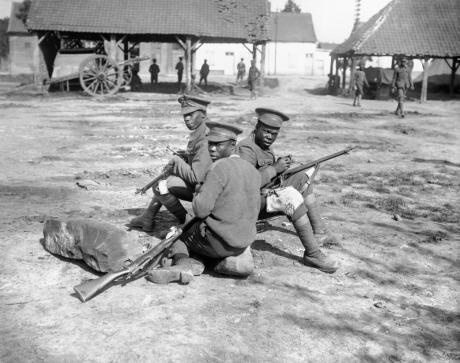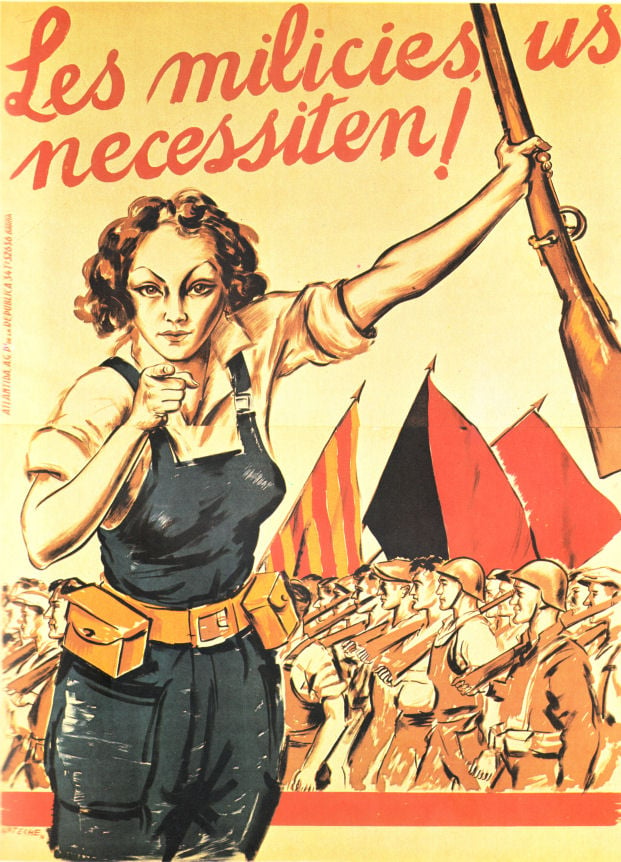West Indies Regiment Mutiny (1918)
Fri Dec 06, 1918

Image: British West India Regiment troops in France, 1916. Photograph copyright Imperial War Museum
On this day in 1918, members of the British West Indies Regiment began a four-day mutiny, facing pay and rank discrimination within the British Army. As a result of severe labor shortages in Taranto, Italy, the West Indians had to carry out arduous physical tasks, unloading ships and cleaning toilets for white soldiers. Black members were also not allowed to have a rank higher than Sergeant, and white soldiers were given a pay raise while black soldiers were not.
Under these conditions, the men of the 9th Battalion revolted and attacked their black officers. The mutiny lasted four days. Approximately 60 soldiers were tried for mutiny and those convicted received sentences ranging from three to five years, although one was executed by firing squad.
In the aftermath of the crushed rebellion, an organization called the “Caribbean League” was formed by West Indian soldiers. When one sergeant stated “the black man should have freedom and govern himself in the West Indies and that if necessary, force and bloodshed should be used to attain that object” at a meeting, he was loudly applauded by the majority of those present.
The soldiers decided to hold a general strike for higher wages on their return to the West Indies. A secret memo written by the British government in 1919 recognized the revolutionary sentiments among the soldiers: “Nothing we can do will alter the fact that the black man has begun to think and feel himself as good as the white.”
- Date: 1918-12-06
- Learn More: libcom.org, www.iwm.org.uk.
- Tags: #Mutinies.
- Source: www.apeoplescalendar.org


The proof of what empires will do came through very clearly in World War 1 and it sparked revolutionary thought globally.
Most were violently suppressed as the empires did not all fall.